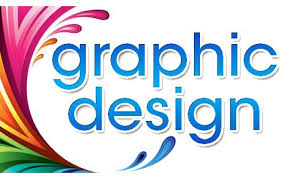Exploring Opportunities in the Creative Economy
In today’s rapidly evolving world, the creative economy is emerging as a significant driver of growth and innovation. The creative economy encompasses a wide range of industries that rely on creativity, skill, and talent to generate economic value. From art and design to music, film, advertising, and software development, this sector offers a plethora of opportunities for individuals and businesses alike.
The creative economy is fueled by the demand for unique and compelling experiences in various fields. Consumers are increasingly seeking out creative products and services that go beyond the mundane and provide them with a sense of novelty, inspiration, and emotional connection. This shift in consumer preferences has led to a surge in demand for creative professionals who can generate fresh ideas, tell engaging stories, and deliver innovative solutions.
One of the key advantages of the creative economy is its potential for job creation and economic growth. According to a report by the United Nations Conference on Trade and Development (UNCTAD), the creative economy is one of the most rapidly growing sectors of the global economy, with an annual growth rate of over 7 percent. It has become a major source of employment, particularly for young people and those with artistic and technical skills.
The digital revolution has played a pivotal role in the expansion of the creative economy. The internet and social media platforms have provided artists, designers, musicians, and other creative professionals with unprecedented access to global audiences. They can showcase their work, sell their products and services, and collaborate with others in ways that were unimaginable just a few decades ago. The rise of online marketplaces, crowdfunding platforms, and streaming services has democratized the creative industry, allowing talented individuals to bypass traditional gatekeepers and directly connect with their target audience.
Moreover, advancements in technology have opened up new avenues for creativity and innovation. Virtual reality (VR), augmented reality (AR), artificial intelligence (AI), and blockchain technology are revolutionizing the way we create and consume creative content. Artists can now experiment with immersive storytelling techniques, designers can create interactive and personalized experiences, and musicians can produce music using innovative digital tools. These technologies not only enhance the creative process but also create new business models and revenue streams.
The creative economy is not limited to individual artists and creators. It also presents opportunities for businesses across various sectors. Companies are recognizing the value of incorporating creativity and design thinking into their strategies to differentiate themselves in the market. They are seeking out creative professionals to develop innovative products, design captivating marketing campaigns, and craft compelling brand stories. Collaboration between creative professionals and businesses has become increasingly common, leading to the emergence of creative hubs, co-working spaces, and incubators that foster innovation and entrepreneurship.
For individuals considering a career in the creative economy, there are numerous paths to explore. Traditional creative disciplines such as visual arts, performing arts, and writing continue to be in demand. However, new areas such as UX/UI design, digital marketing, content creation, and data visualization are also gaining prominence. Embracing interdisciplinary skills and staying updated with the latest technological advancements can open doors to exciting opportunities.
Entrepreneurship is another avenue worth exploring in the creative economy. Many creative professionals are leveraging their skills and expertise to start their own businesses, whether it’s a design studio, a production company, an online art gallery, or a creative agency. With the right combination of creativity, business acumen, and networking, individuals can carve out their niche and build successful ventures.
In conclusion, the creative economy presents a wealth of opportunities for individuals and businesses. It is a dynamic and rapidly expanding sector that thrives on innovation, talent, and imagination. As technology continues to evolve and consumer preferences evolve, the creative economy will continue to shape our cultural landscape and drive economic growth. Whether you are an artist, designer, musician, or a business looking to infuse creativity into your operations


